Germs are everywhere, and nobody wants them on their skin, right? However, the best way to keep these germs away is to wash your hands and body. But can you really trust the soap you’re using in germ protection? Does bar soap kill germs?
Bar soap is a powerful way to kill germs and keep your skin healthy and clean. That’s because all bar soaps contain alkaline compounds that can kill germs and are easy to use and affordable.
In this article, we’ll discuss the different ways of killing germs with bar soap and when you should use them to clean your skin.
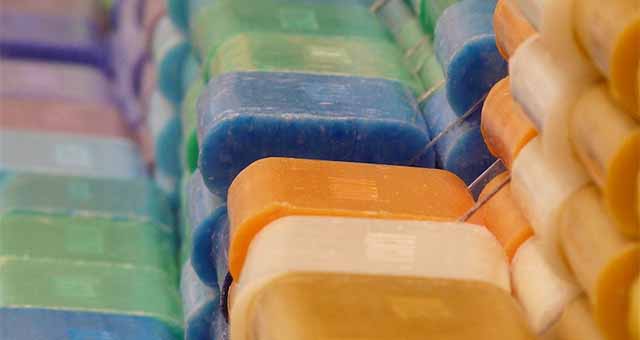
How does bar soap kill germs?
Bar soap kills germs as it’s highly alkaline. Its pH level is typically around 9 or 10. And this high pH creates an inhospitable environment for bacteria. The highly alkaline soap disrupts bacterial cell membranes.
Soap also contains other chemicals that kill germs, including triclocarban and triclosan. You know these are known as antimicrobial agents. They work by disrupting the function of certain enzymes that are necessary for bacterial reproduction.
Additionally, the soap also contains surfactants, which make it easier for water to penetrate surfaces and kill bacteria even those that live in cracks and pores.
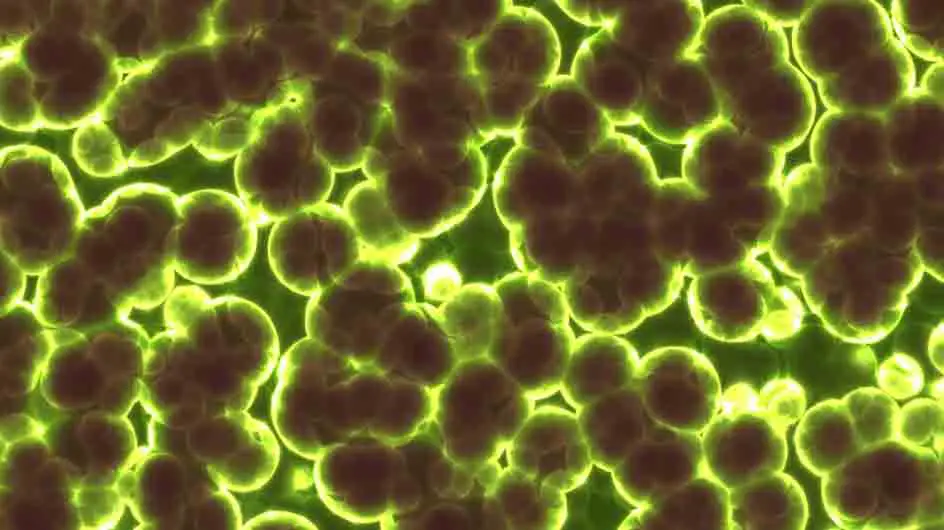
What are the alkaline compounds in bar soap?
Bar soaps contain various alkaline compounds, but the most common are sodium hydroxide and potassium hydroxide. Sodium hydroxide is commonly known as lye, while potassium hydroxide is called caustic potash.
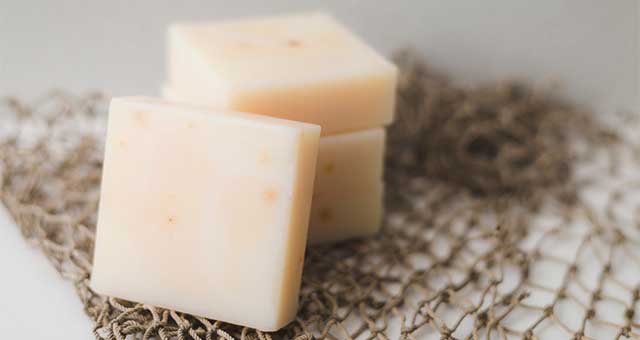
You can use either in place of the other in most recipes, but they have slightly different properties. These are:
Sodium Hydroxide
Sodium hydroxide is often used in cleaning products because it dissolves grease and oils easily. It is also used in many household recipes for making soap or homemade cleaners. While it has some benefits over potassium hydroxide, it can be dangerous if not handled properly or used correctly.
For working with this compound, always wear protective gloves and eye protection when handling it or using any products that contain it.
Potassium Hydroxide
Potassium hydroxide is a weaker base than sodium hydroxide and has a lower pH than sodium hydroxide solutions. Because of this, potassium hydroxide solutions will produce softer bars than those made with sodium hydroxide.
Which bar soap is best for germ control?
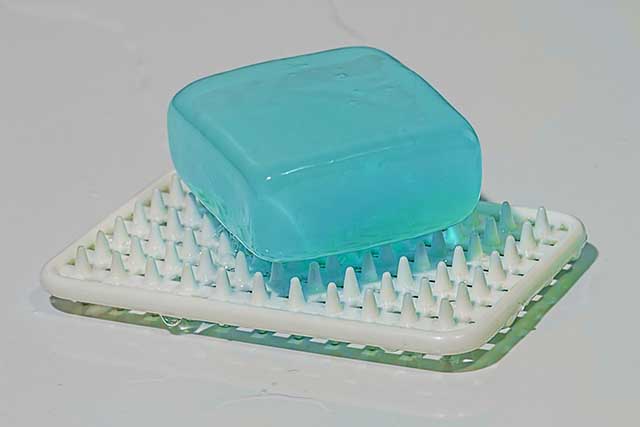
When it comes to germ control, there are a lot of different options out there. Some are antibacterial, while others are not. But which one is the best?
The answer depends on your personal preference. If you are someone who is looking for an antibacterial soap, then Dial or Cetaphil are two good options that you should try. Dial antibacterial bar soap has been a trusted name in germ control for years. Also, Cetaphil antibacterial soap bar is another excellent option for germ control.
Both of these soaps can kill bacteria and other germs. Most importantly, they are both gentle on the skin and will leave you feeling clean and refreshed.
How often should one use bar soap to kill germs?
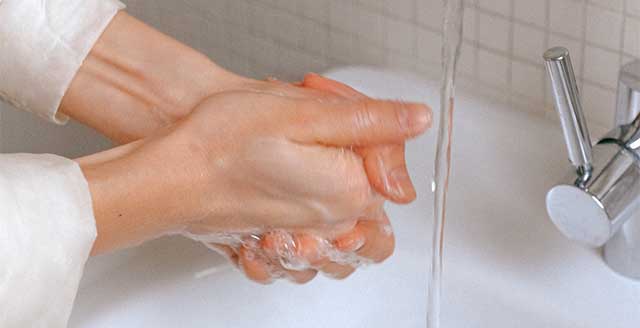
The Centers for Disease Control and Prevention (CDC) recommends washing your hands with soap and water for at least 20 seconds. Especially after coming into contact with people or surfaces that may be contaminated with germs.
So, if you’re using a bar of soap, first, lather it up for at least 20 seconds. This will help to ensure the effective killing of any germs on the soap. Now, rinse off with clean water. Finally, dry using a clean towel.
Bar soaps are effective at killing germs, but they won’t work as well in heavily contaminated areas or if there is an infection present.
Is Antibacterial bar soap Better Than Plain bar soap?
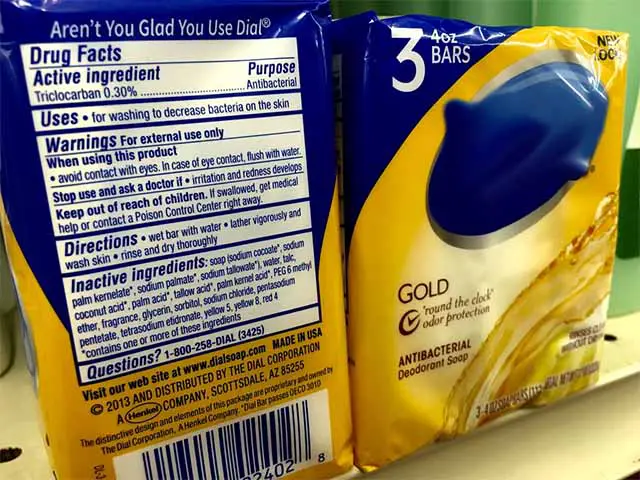
It’s no secret that bar soap is one of the most important tools in the fight against bacteria and other germs. But what kind of soap is best? Antibacterial soap or plain soap?
There are pros and cons to both kinds of soap. Antibacterial soap is effective at killing bacteria, but it can also kill good bacteria that help protect against bad bacteria. This can lead to problems like antibiotic resistance.
Plain soap, on the other hand, doesn’t kill bacteria as effectively, but it doesn’t have the same risks as antibacterial soap. It does the job of getting rid of germs without any harmful side effects.
So, which one is better? It depends on your needs. If you’re looking for antibacterial soap, make sure to choose one that is gentle on your skin and doesn’t contain any harmful chemicals. Plain soap can be a good choice if you’re just looking for a soap that will clean your skin.
Is bar soap harmful to the environment?

When it comes to bar soap, there are two types of formulations: organic and synthetic. Both have their own benefits and drawbacks when it comes to the fact whether there are environment friendly or not.
Organic Soaps
Organic soaps are made with natural ingredients and are biodegradable. This makes them a great choice for those who are looking to be more eco-friendly. However, these soaps can be more expensive than synthetic soaps.
Synthetic Soaps
Synthetic soaps are made with chemicals and usually are not biodegradable. These can be bad for the environment.
FAQ
Are antibacterial soaps effective at killing germs?
Antibacterial soaps contain ingredients that can kill bacteria. The most common ingredient in these soaps is triclosan. It is a broad-spectrum antimicrobial agent that is effective against a wide range of bacteria, including gram-positive and gram-negative bacteria.
Is it okay to reuse my old soaps bars for another purpose?
Yes, you can reuse soap bars for a variety of purposes. You can make new soap bars for your own use and also make liquid soap using leftover soap slivers.
Is bar soap a breeding ground for bacteria?
Bar soap is not a breeding ground for bacteria. In fact, bar soap is effective at preventing the spread of germs and killing bacteria. However, bacteria can grow on the surface of bar soap if you do not store it properly or if you do not use it frequently.
Is bar soap less sanitary?
There is no harm in using bar soap as long as you are using the soap alone. However, if you share the bar soap with someone else, there is a chance that the other person may not be as benefited as you are. In this case, using another bar or liquid soap will be best to maintain proper hygiene.
Can you use other ingredients besides lye to make an alkaline cleaner?
Yes, you can use other ingredients besides lye to make an alkaline cleaner. Potassium carbonate and potassium hydroxide are two commonly used alternatives to lye. Both potassium carbonate and potassium hydroxide are strong alkalis that can be used to clean a variety of surfaces.
Conclusion
Bar soap is a common household item many people use when cleaning surfaces. But does bar soap kill germs? The answer is a resounding yes!
Based on the information above, it should be clear to you that soap bars are effective at killing bacteria. This is because the alkaline ingredient in soap works to break down the bacteria’s cell walls.
Also, read about Does Bar Soap Need to Be In Quart Bag? Explained!
